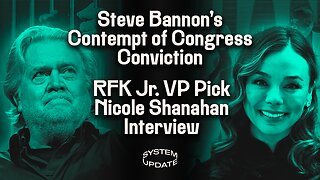American and Chinese Exceptionalism and “The New Cold War” Rhetoric | Conversation with Claes Ryn
As part of IPD’s ongoing series on U.S.-China relations, Professor Claes Ryn Sits down with Dr. Arta Moeini to dissect some underlying causes of the New Cold War rhetoric and review the historical, philosophical, and moral reasons that could drive U.S. public and elites alike toward hysteria and threat inflation. They discuss the clear linkages between idealism, exceptionalism, and war/militarism. How might the bifurcated lens of American and Chinese exceptionalism help policymakers in Asia and the North Atlantic better understand the escalatory path that might lead to confrontation between the West and China. In what ways could the differing sense of exceptionalism among Chinese and American elites inform the alternate strategic posture of US and China?
One way to make sense of the recent rise in hawkishness and the peculiarities of statecraft and strategic culture among Washington and Beijing is to think about the different political and ideational traditions and historical particularities of US and China. As for the U.S., Ryn calls attention to what he calls Neo-Jacobinism an idealistic and missionary streak embedded in US statecraft/foreign policy that has historically impelled and normalized projects of empire and armed moralism. Alternatively, many Chinese elites remain beholden to an older, more isolationist, and self-contained vision of statecraft that is historically informed by Confucianism and tradition, which Ryn argues continue to permeate into and interact with the ideology of the Modern Communist party in interesting ways.
The discussion centers on the philosophical, historical, cultural, political, and ideological dimensions of foreign affairs that are often overlooked in overly securitized and militarized framing of international relations that define the world in Manichean terms. A fresh focus on shared traditions of virtue and restraint among different civilizations, though unconventional and uncommon today, could help uncover the preconditions for peaceful international relations premised on diplomacy, mutual respect, and understanding among statesmen, peoples, and civilizations.
Claes G. Ryn: Professor & Founding Director of the Center for the Study of Statesmanship, The Catholic University of America.
-
 4:12
4:12
KathyLeicester
3 years ago $0.06 earnedAmerican Exceptionalism
2102 -
 1:47:41
1:47:41
The Charlie Kirk Show
9 hours agoTHOUGHTCRIME Ep. 48 — Trump Rally Aftermath + Pride Month + "White Fortressing"?
94.8K41 -
 2:15:48
2:15:48
Laura Loomer
10 hours agoEP52: THE GREAT REPLACEMENT: Trump and Biden Spar Over Border Policies Ahead of First Presidential Debate
55.2K31 -
 1:29:23
1:29:23
Kim Iversen
11 hours agoJournalists Critical of Israel Fired and Threatened With Arrest! | What Is “Scholasticide” In Palestine?
78.6K120 -
 2:01:58
2:01:58
Melonie Mac
12 hours agoGo Boom Live Ep 6
55.3K14 -
 1:21:32
1:21:32
Game On!
10 hours agoStanley Cup Finals: Oilers vs Panthers Series Preview
49.9K8 -
 1:15:28
1:15:28
Precision Rifle Network
1 day agoGuns & Grub S2E7
48.8K7 -
 2:23:00
2:23:00
Donald Trump Jr.
16 hours agoLIVE WITH RUSSELL BRAND | TRIGGERED Ep.143
171K281 -
 1:19:17
1:19:17
Glenn Greenwald
12 hours agoSteve Bannon's Contempt Charges Reveal Historic Double Standard; Interview with RFK Jr.'s Running Mate Nicole Shanahan on the 2024 Election and More | SYSTEM UPDATE #278
87K231 -
 1:02:52
1:02:52
The Late Kick with Josh Pate
13 hours agoLate Kick Live Ep 519: CFB’s Biggest ?s | Hall-Of-Fame Broken | Deion Expectations | Bold Predictions
33.5K2